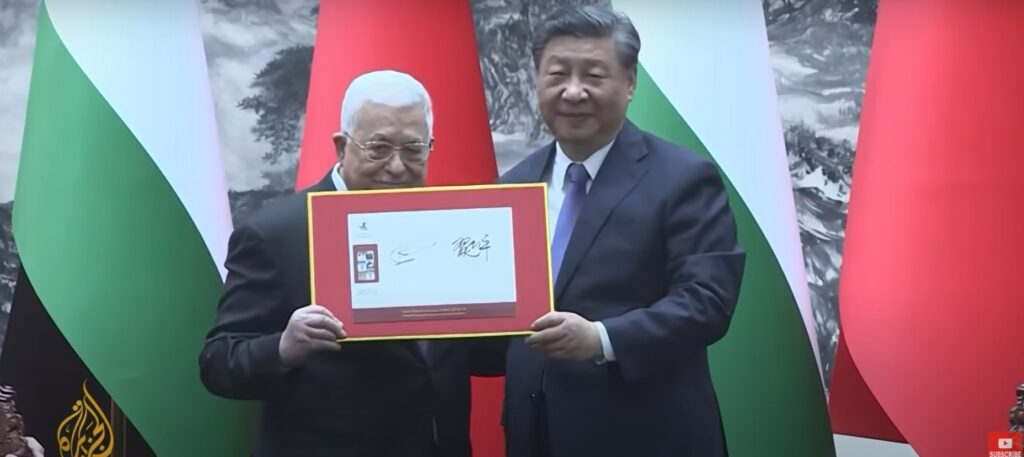The visit of PA Chairman Mahmoud Abbas to China, along with his meeting with Chinese President Xi Jinping, received extensive coverage in both Palestinian and Chinese media. The timing of the visit was deemed important due to China’s growing influence in the Middle East and the circumstances surrounding the Palestinian issue.
Arriving in China after his presidential election victory and during a period of Chinese success in the economic, scientific, and technological sectors, Abbas had high expectations that China would mediate in the stalled negotiations between the Palestinians and Israel.
Additionally, he hoped China could facilitate reconciliation between the rival Hamas and Fatah factions, which have remained divided since 2007.
The PA saw Abbas’s meeting with the Chinese President as an opportunity to revive the Palestinian problem and place it back on the international agenda.
China has consistently supported the Palestinians in the United Nations and the Security Council as a permanent member.
It consistently backs decisions favoring the Palestinians and maintains a firm stance in support of the establishment of an independent Palestinian state along the 1967 borders, with East Jerusalem as its capital.
China also opposes Israel’s settlement policy in Judea and Samaria.
However, it appears that Abbas’s hopes were dashed during his visit to China.
The achievements of his visit, as reported by the PA’s official news agency, “Wafa,” on June 14th, were minimal.
Abbas signed an agreement with the Chinese to improve road infrastructure in Ramallah, discussed implementing Chinese language programs in Palestinian schools, and negotiated visa exemptions for Palestinians with diplomatic passports.
Despite the preceding media hype in Palestinian Authority and some Arab outlets, senior officials within the Palestinian Authority expressed disappointment with the outcomes of Abbas’s visit to China.
China continues to support Israel as a Jewish state and invests in settlement projects in Judea and Samaria.
There are currently no indications that China intends to mediate between Israel and the Palestinians to revive the stalled negotiations.
Likewise, China has not shown any intention to assist the Palestinians in achieving permanent member state status at the United Nations.
Presently, the Palestinian Authority holds only observer status.
A senior Palestinian official notes the significant disparity between China’s verbal promises and their practical willingness to take action.
It is crucial to remember that China maintains favorable relations with Israel.
Abbas returned to Ramallah empty-handed, as his expectations of China pressuring Israel were not met.
China cannot suddenly become a mediator between Israel and the Palestinians.
The United States remains the primary mediator since the signing of the Oslo Accords, and Israel is unwilling to accept Chinese mediation.
While China supports the convening of an international peace conference leading to direct negotiations between Israel and the Palestinians, Israel opposes this idea, viewing it as a means of exerting international pressure and attempting to impose a solution desired by the Palestinians.
In summary, China defines itself as a neutral country. However, from the Palestinian perspective, its support for the normalization process between Israel and Arab countries, as well as its opposition to rocket attacks on Israel from the Gaza Strip, raises doubts about its neutrality.
The Palestinian opposition views Abbas’s visit as yet another failure in his policy, emphasizing the urgent need for him to step down from the political stage as soon as possible




